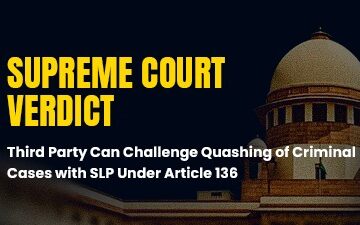Domestic violence remains a pervasive issue across the globe, including India, where laws are in place to safeguard individuals from abuse in intimate or familial relationships. This blog delves into the legal implications of physical abuse, particularly focusing on instances where a partner slaps the other. Whether it’s a husband slapping his wife or a wife slapping her husband, the legal frameworks and protections vary significantly. Let’s explore the key aspects of domestic violence laws, their applications, and the broader societal discourse.
Domestic Violence: A Broad Legal Definition
The Protection of Women from Domestic Violence Act, 2005 (PWDVA), defines domestic violence comprehensively. It includes not only physical harm but also emotional, psychological, sexual, and economic abuse. A slap, as a form of physical violence, unequivocally falls under this definition when inflicted by a man on a woman.
While the primary objective of domestic violence laws is to protect women, instances where men face physical harm are also addressed under alternate provisions of the Indian Penal Code (IPC). However, protections for male victims are less extensive, sparking ongoing debates on the need for gender-neutral legislation.
Legal Consequences for a Husband Slapping His Wife
When a husband physically harms his wife, such as through a slap, it is considered a form of domestic violence. The legal framework offers multiple remedies to protect the wife and ensure justice:
Key Legal Provisions:
- Protection Orders (PWDVA): Courts can issue orders to prevent further violence or harassment.
- Residence Rights: The wife can seek a residence order to stay in the marital home, regardless of ownership.
- Financial Compensation: Monetary relief can be claimed for expenses incurred due to the abuse.
- Criminal Charges (Section 498A, IPC): Severe cases involving cruelty or harassment may lead to criminal charges, which are non-bailable and carry significant penalties.
- Counselling or Mediation: Courts may recommend counselling for both partners to address underlying issues.
These remedies aim to provide both immediate protection and long-term support to the victim.
Legal Recourse for a Husband Slapped by His Wife
Though the PWDVA predominantly protects women, men who face violence from their wives are not entirely without recourse. Here’s how husbands can seek justice:
Available Legal Measures:
- Section 323, IPC: This provision penalizes causing hurt, allowing men to file complaints against physical abuse.
- Grounds for Divorce: Repeated acts of violence may be cited as grounds for divorce under civil law.
- General Complaints: Men can lodge complaints with the police, especially when physical injuries are documented.
While these options exist, they do not provide the same level of support and protection as the PWDVA, highlighting a gap in legal safeguards for male victims.
The Role of Intent and Severity in Legal Outcomes
The legal consequences of domestic violence hinge on two critical factors:
- Intent: Was the act intended to intimidate, harm, or control the victim?
- Severity: The extent of physical or emotional harm caused plays a pivotal role in determining the court’s response.
Even a single slap can justify legal action if it embodies intent to intimidate or harm. Evidence such as medical reports, witness statements, and prior records of abuse often influences judicial outcomes.
Filing Domestic Violence Complaints: Process and Channels
Victims of domestic violence can take the following steps to seek legal recourse:
- Approach Protection Officers: Designated officers under the PWDVA assist victims in filing complaints and obtaining protection orders.
- File an FIR at Police Stations: For immediate action, victims can register a First Information Report (FIR).
- Seek Relief from Courts: Family or district courts handle cases under the PWDVA, offering a supportive legal framework without necessarily pursuing criminal charges.
Myths and Misconceptions About Domestic Violence
Several myths cloud societal understanding of domestic violence, including:
- Myth 1: Domestic violence only involves physical harm.
- Reality: Emotional, psychological, and financial abuse are equally significant.
- Myth 2: Men cannot be victims.
- Reality: Men, too, can face violence and can seek legal recourse under specific laws.
- Myth 3: A single slap doesn’t count as domestic violence.
- Reality: Even one act, if intended to harm or control, constitutes domestic violence.
Toward Gender-Neutral Domestic Violence Laws
There is a growing call for gender-neutral domestic violence laws in India to ensure all victims, irrespective of gender, have access to justice. Advocacy groups and legal experts emphasize the importance of comprehensive protections that extend to men and other marginalized groups.
Conclusion: Zero Tolerance for Violence in Relationships
Physical violence, whether inflicted by a husband or a wife, is a serious matter under Indian law. While the PWDVA provides robust protection for women, men also have legal remedies under the IPC. The broader discourse on domestic violence must evolve to ensure inclusivity, fairness, and justice for all victims, fostering a society free from abuse.


